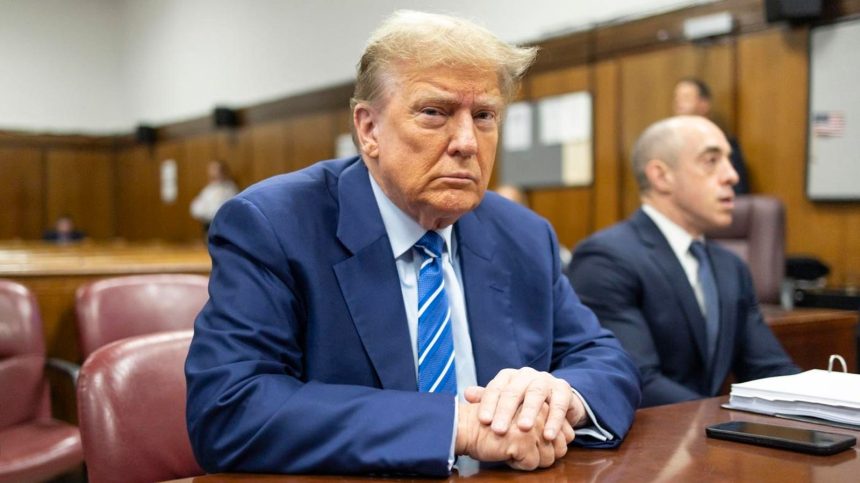Paragraph 1: The Verdict Stands: Trump’s Conviction Remains Despite Presidential Election
Former President Donald Trump’s conviction on 34 felony counts of falsifying business records will not be overturned despite his recent presidential election victory. Judge Juan Merchan of the New York Supreme Court denied Trump’s motion to dismiss the verdict, asserting that the president-elect’s electoral success does not invalidate the jury’s decision. This ruling sets the stage for a sentencing hearing scheduled for January 10th, just ten days before Trump’s inauguration, adding another layer of complexity to the unprecedented scenario of a convicted felon assuming the presidency.
Paragraph 2: Constitutional Clash: Trump’s Arguments and the Court’s Response
The former president’s legal team argued that proceeding with the sentencing would impede the functioning of the federal government and violate the Supremacy Clause of the U.S. Constitution, which prioritizes federal law over state law. They contended that the ongoing legal proceedings would unduly burden the president-elect during the crucial transition period. Prosecutors, while acknowledging the unique circumstances, countered that the case should not be dismissed, suggesting postponing the sentencing until after Trump leaves office or concluding the case without a formal sentence, as is customary when a defendant dies before sentencing. Judge Merchan, however, rejected both of these proposals, finding that neither the Constitution nor the practicalities of the situation warranted such measures.
Paragraph 3: Judge’s Rationale: Timing and Implications of the Sentencing
Judge Merchan underscored that the timing of the sentencing was a direct consequence of Trump’s own requests for repeated postponements. Originally scheduled for July, the sentencing was delayed at Trump’s behest until after the presidential election. The judge deemed it "disingenuous" for Trump to now claim that his electoral victory necessitates further delays. Merchan also emphasized the "obvious" reasons for holding the sentencing before the inauguration, implying a desire to resolve the matter before Trump assumes the full powers of the presidency. Despite upholding the conviction and scheduling the sentencing, Merchan stated his intention to avoid imposing a prison sentence on the president-elect.
Paragraph 4: Reactions and Repercussions: Political and Legal Fallout
Trump’s spokesperson vehemently criticized the ruling, denouncing the case as "lawless" and demanding its immediate dismissal. The spokesperson argued that Trump should be allowed to focus on the presidential transition and execute his duties without the distraction of this legal matter. This decision has significant implications, as it marks an unprecedented legal challenge for a newly elected president. The judge’s decision not to impose prison time, while acknowledging the logistical challenges of incarcerating a president, leaves open the possibility of substantial fines and other penalties.
Paragraph 5: Legal Landscape: Ongoing Challenges and Potential Appeals
Trump retains the right to appeal Judge Merchan’s ruling before the scheduled sentencing, but the likelihood of success remains uncertain. Following the sentencing, Trump can also appeal the jury’s verdict to a higher court, seeking to overturn his conviction. The duration and outcome of these appeal processes remain unknown, adding to the already complex legal web surrounding the former president. Moreover, Trump’s conviction as a felon could complicate his international travel as president, potentially requiring special waivers to enter countries with restrictions on convicted felons.
Paragraph 6: The Broader Context: Past Legal Battles and Future Uncertainties
This case represents a significant chapter in the ongoing legal saga surrounding Donald Trump. He faced two federal criminal cases, both of which were dropped after his election due to the Justice Department’s policy against prosecuting sitting presidents. A criminal case in Georgia remains unresolved, facing potential dismissal or transfer to a different prosecutor. Furthermore, several civil cases against Trump are still pending in appeals courts. The intersection of these various legal proceedings with Trump’s presidency creates a unique and potentially volatile situation with far-reaching implications for the American legal and political landscape.



